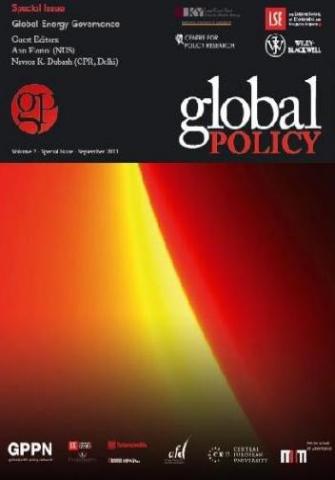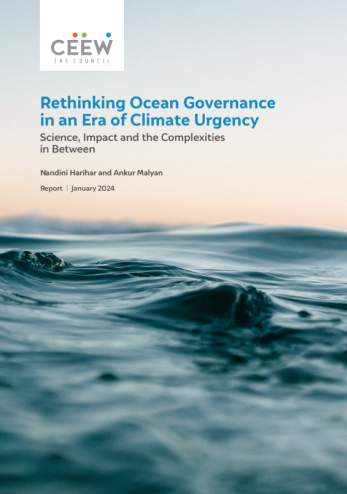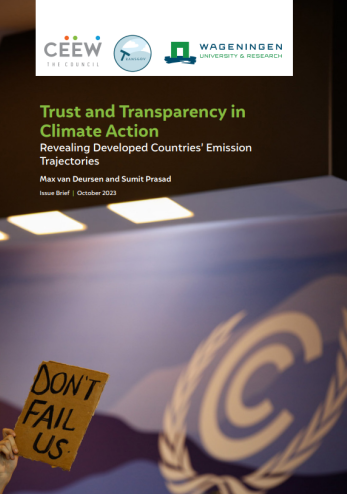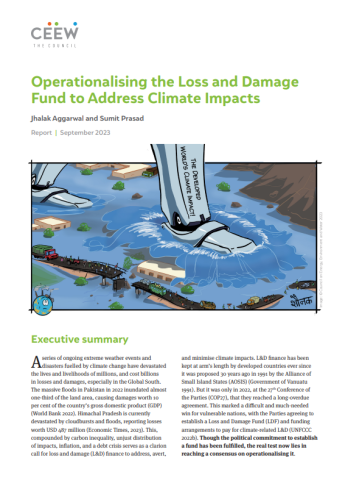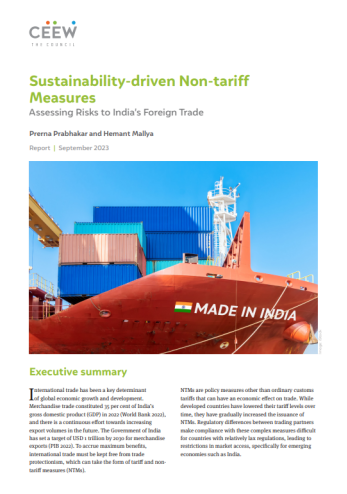Paper
Seeking Coherence in Complexity
The Governance of Energy by Trade and Investment Institutions
Arunabha Ghosh
September 2011 | International Cooperation
Suggested citation: Ghosh, Arunabha. 2011. “Seeking Coherence in Complexity: The Governance of Energy by Trade and Investment Institutions,” Global Policy 2 (Special Issue): 106-119
https://doi.org/10.1111/j.1758-5899.2011.00125.x
Overview
This journal paper analyses how energy is governed by international trade and investment institutions and agreements. It also examines how it would be governed by these institutions depending on alternative governance preference. It outlines three sets of tensions that are shaping the context for energy governance: 1) between emerging multipolarity and existing regimes, 2) between states and markets, and 3) a structural imperative between energy and climate. Further, it analyses how the landscape of multilateral, plurilateral and regional agreements manages these challenges from the perspective of energy exporters, importers, and firms. In addition, it outlines a schematic framework for institutional design.
Key Highlights
- The diversification of demand and volatility in oil prices increase concerns about energy security and make a potential race to lock in future oil supplies more likely.
- Energy governance is being pulled in different directions and the energy market is becoming more decentralised (and global).
- A single institution or regime cannot govern energy trade and investment, given the pressures of energy security, climate change, and trade liberalisation.
- Large, state-owned behemoths are trying to re-establish influence over energy flows, thus creating a tension between state control and market-led mechanisms.
- Alongside existing large consumers, emerging powers are seeking the security of supply. The resulting multipolarity creates tension between existing multilateral and plurilateral or regional approaches.
- Climate change has introduced another tension between the pursuit of energy security and environmental sustainability.
- Climate change is putting pressure on producers and consumers to develop cleaner energy sources while raising potential trade disputes over border measures or subsidies to clean technology industries.
- Countries have chosen to participate in multiple regimes, thus creating partially overlapping membership.
- Emerging powers, especially in the Asia-Pacific region, have already undertaken initiatives at a subregional and pan-regional level to focus largely on energy security. While they continue to participate in multilateral institutions, their preferred forums for governing energy trade and investment seem to lie elsewhere.
- For governing energy trade and investment in the future, the choice will depend on what countries and firms prioritise - more or less consistency in rules and more fragmented governance or greater integration.
- The status quo – fragmented institutions and inconsistent rules – will most likely add to tensions in energy trade: more disputes on state-subsidised clean tech investments; increased competition to secure exclusive access to oil, gas, coal and other minerals; and threats of unilaterally imposed environment-related trade barriers.
- Careful assessments of the strengths of each institution could offer clues for how they could perform different governance roles (from rulemaking to monitoring and enforcement) and complement each other.
Key Recommendations
- Make two sets of decisions to govern the complex structure of energy trade-related institutions: make rules more or less consistent across regimes, and adopt more integrated or more fragmented institutional designs.
- Aim to liberalise trade in environmental goods and services at the WTO; ink a climate agreement that can offer signals for more low-carbon investments in the energy sector; and make use of Asian institutions (ASEAN+6; APEC) to promote technology cooperation in the region responsible for the most increase in energy demand. A realistic outcome would be fragmented governance with more consistent rules.
The World Trade Organisation will have to strengthen its monitoring and dispute resolution devices to reduce the risk of misuse of environment-related trade barriers.




